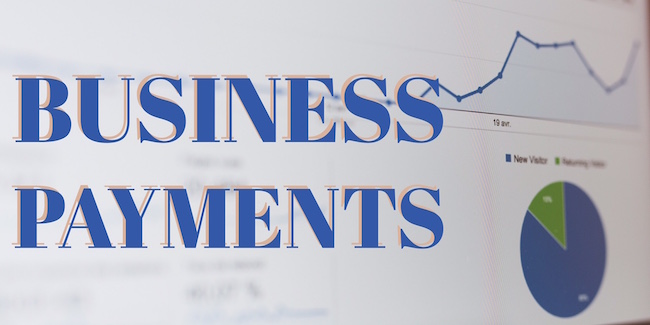A few years ago, I went to my bank and asked if I could deposit my checks remotely. I was told that, for personal checks, I could use remote deposit. However, business payments couldn’t be processed the same way.
It’s been interesting to note that business payments and banking have moved at a slower pace than consumer banking. While consumers seem to demand these products and services, businesses have been slow to adopt them. Or, at least, the banks don’t seem to think they need to offer them to businesses.
Now, though, it seems as though business payments could be moving away from banking. Technology offers the opportunity for businesses and consumers alike to find new ways to make and accept payments. As a result, it’s possible that more people and businesses are moving away from traditional banks.
Blockchain Payments and Businesses
The rise of blockchain business payments in digital currency is changing the landscape. Instead of going through a banking clearinghouse, it’s possible to engage in direct exchanges with business and customers. A bit of computer code handles the transactions and you cut out the banks.
Increasingly, businesses and others are accepting digital currencies because you don’t have to worry about exchange rates and high fees. Instead, you can interact directly with customers, employees, and business partners and send payments almost instantaneously.
Business payments made this way could slowly push banks out of the way if they don’t adapt. The rise of fintech in recent years is an indication that there are some companies interested in facilitating payments and other business functions without banks.
Where Can You Store Your Money?
One of the biggest things banks still have going for them is the fact that there aren’t many places to store your money. There are digital wallets where you can keep your eCash and cryptocurrencies, but it’s not the same thing as storing your money in a bank account that pays you interest.
For now, business payments still need to be transformed back into more “traditional” forms of payment if you plan to keep the money in a bank and earn interest.
Other business owners might still be wary of the security around digital wallets. While many of these wallets are encrypted and secure, it’s important to remember to back them up because you don’t want to lose your digital wallet and all the information about your money.
There are some banks and even central banks toying with the idea of storing digital currencies, like Bitcoin, but so far these are few and far between. Proponents of digital currencies are concerned that the entrance of traditional banking into this area could muck it up a bit, adding fees and reintroducing the middleman.
For now, it’s possible to diversify your business payments with the help of digital currencies. You might not be able to store a large amount of the currency long term, but you can certainly keep enough in your digital wallet to ensure that service providers and suppliers on the other side of the world can be paid.














